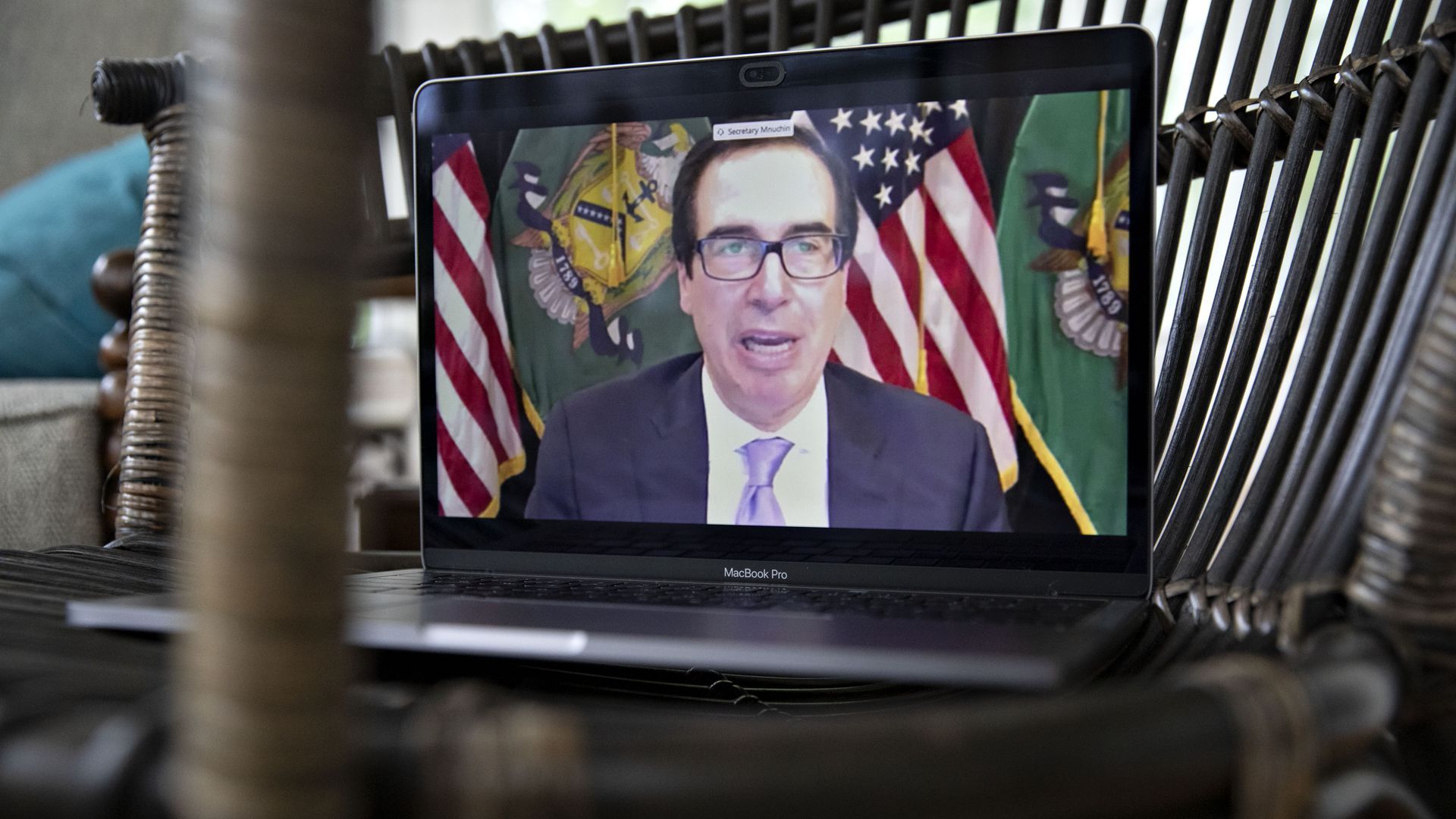May 19, 2020 - Politics & Policy
The Mnuchin/Powell show
Add Axios as your preferred source to
see more of our stories on Google.

Treasury Secretary Steven Mnuchin speaks during a virtual Senate Banking Committee hearing. Photo: Daniel Acker/Bloomberg via Getty Images
